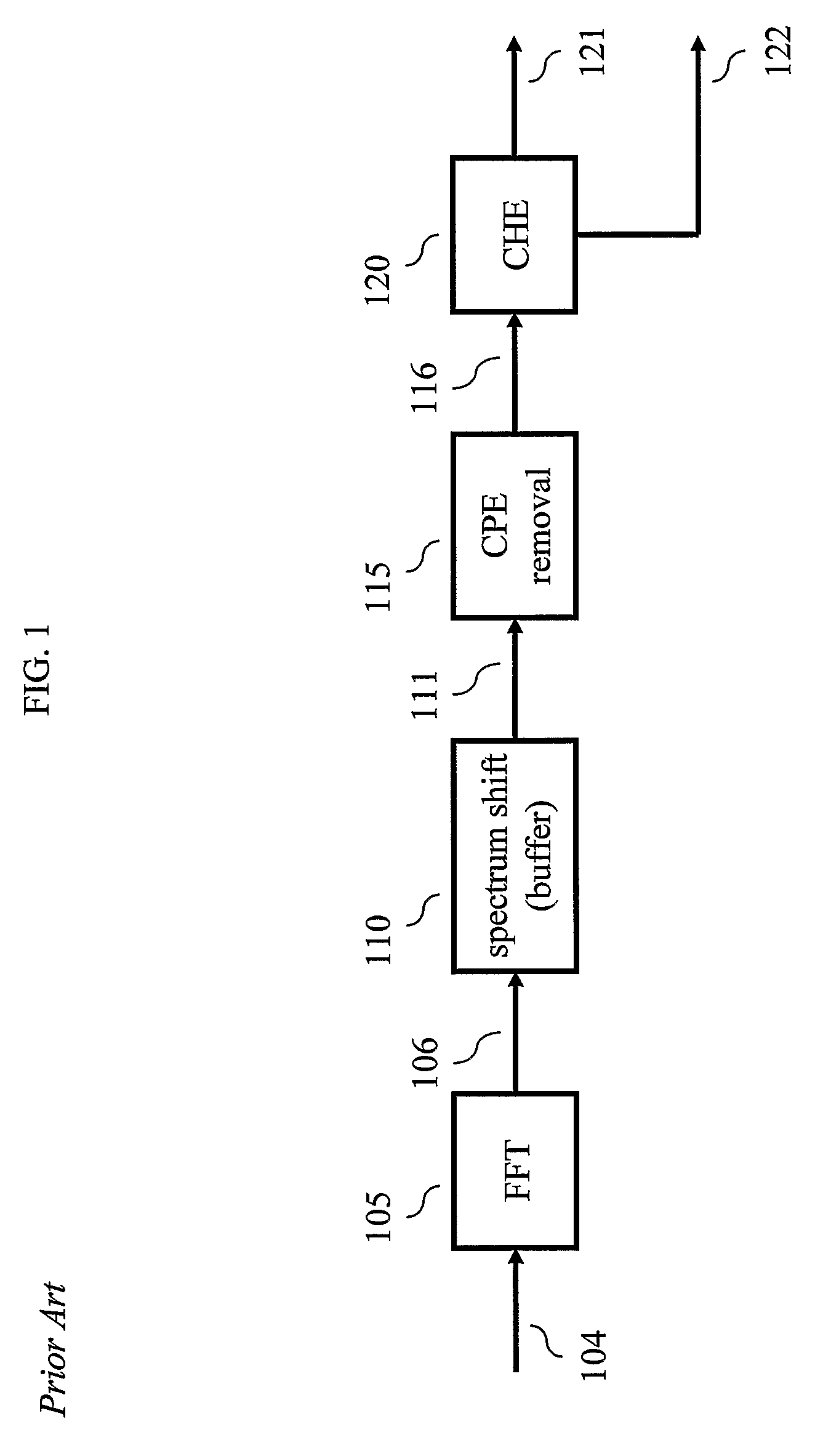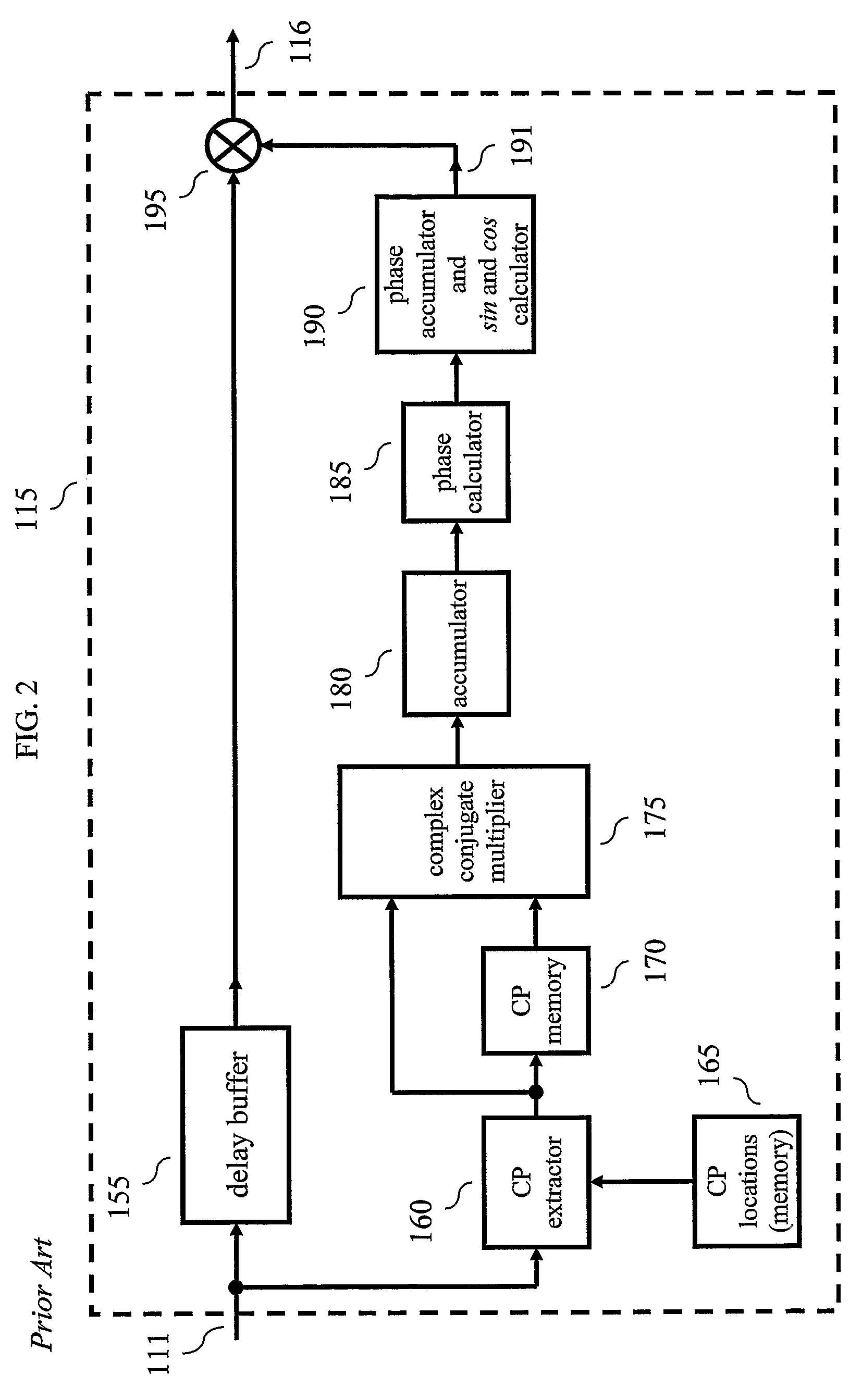Apparatus and method for removing common phase error in a DVB-T/H receiver
a technology of dvbt/h receiver and applicator, applied in the field of communication systems, can solve the problems of adding to channel noise, vco is a main contributor to phase noise, and the impact of phn on receiver operation is much more significant, so as to improve the operation and efficiency of cpe removal
- Summary
- Abstract
- Description
- Claims
- Application Information
AI Technical Summary
Benefits of technology
Problems solved by technology
Method used
Image
Examples
Embodiment Construction
[0022]Other than the inventive concept, the elements shown in the figures are well known and will not be described in detail. For example, other than the inventive concept, familiarity with Discrete Multitone (DMT) transmission (also referred to as Orthogonal Frequency Division Multiplexing (OFDM) or Coded Orthogonal Frequency Division Multiplexing (COFDM)) is assumed and not described herein. Also, familiarity with television broadcasting, receivers and video encoding is assumed and is not described in detail herein. For example, other than the inventive concept, familiarity with current and proposed recommendations for TV standards such as NTSC (National Television Systems Committee), PAL (Phase Alternation Lines), SECAM (SEquential Couleur Avec Memoire), ATSC (Advanced Television Systems Committee) (ATSC), Digital Video Broadcasting (DVB) and the Chinese Digital Television System (GB) 20600-2006 (Digital Multimedia Broadcasting-Terrestrial / Handheld (DMB-T / H)) is assumed. Further ...
PUM
 Login to View More
Login to View More Abstract
Description
Claims
Application Information
 Login to View More
Login to View More - R&D
- Intellectual Property
- Life Sciences
- Materials
- Tech Scout
- Unparalleled Data Quality
- Higher Quality Content
- 60% Fewer Hallucinations
Browse by: Latest US Patents, China's latest patents, Technical Efficacy Thesaurus, Application Domain, Technology Topic, Popular Technical Reports.
© 2025 PatSnap. All rights reserved.Legal|Privacy policy|Modern Slavery Act Transparency Statement|Sitemap|About US| Contact US: help@patsnap.com



